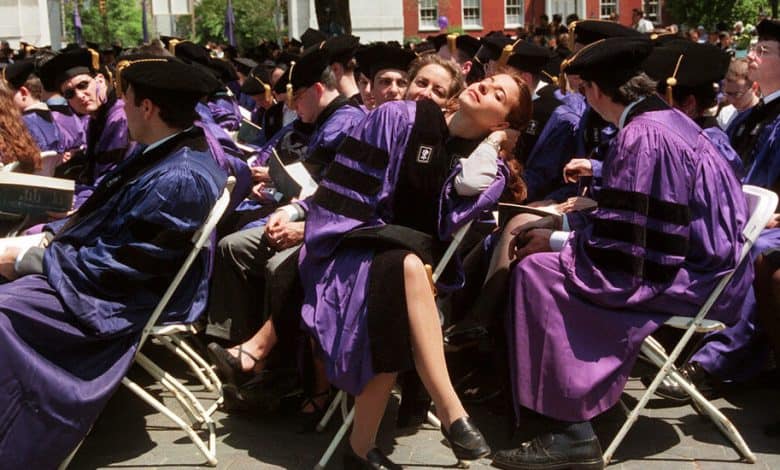Why Forgettable Commencement Speeches Are a Good Thing

Over the past few weekends, graduating seniors at American colleges and universities have been reminded of the necessity of laughter, the importance of failure and the need for empathy in a troubled and divided world.
This sounds like the dog-bites-man version of the story, but in the wake of months of campus strife it might be the opposite. Given the intensity of the pro-Palestinian demonstrations, the sometimes harsh responses to them and the eagerness of some politicians to make hay of the situation, the relative normalcy of this season of cap-and-gown ritual may seem surprising.
There have been exceptions: Several schools scaled back their ceremonies. Some scheduled speakers withdrew; others, notably Jerry Seinfeld at Duke and President Biden at Morehouse, were met with protests. At Harvard, which has been roiled by unrest for months, hundreds of students walked out of commencement and booed the university’s interim president.
Not all the controversy had to do with the war in Gaza. The Kansas City Chiefs kicker Harrison Butker pushed culture-war hot buttons with an anti-feminist oration at Benedictine College. The entrepreneur Chris Pan, at Ohio State, claimed to have written his speech with the help of ayahuasca, which inspired him to preach to the assembled Buckeyes about the glories of cryptocurrency. D’Youville University in Buffalo sent its class of 2024 out into the world with words of wisdom from an A.I.-powered robot.
Of course, the turmoil that shook so many colleges this spring hasn’t melted away in the May sunshine. The war in Gaza continues, and the fissures it has exposed in American liberal institutions — in 21st-century liberalism — are unlikely to heal anytime soon. The arguments about intellectual freedom and the limits of dissent, about the place of political passions in higher education, about what speech is antisemitic and who is complicit in violence, will continue with particular ferocity on quads and in classrooms.
But not, for the most part, from the speakers overlooking the rows of folding chairs where the newly fledged degree holders await expulsion from the nest. Like a wedding toast, a commencement address is not supposed to surpass its occasion. The speaker is generally someone who has said or done memorable things; the speech should not be one of them.